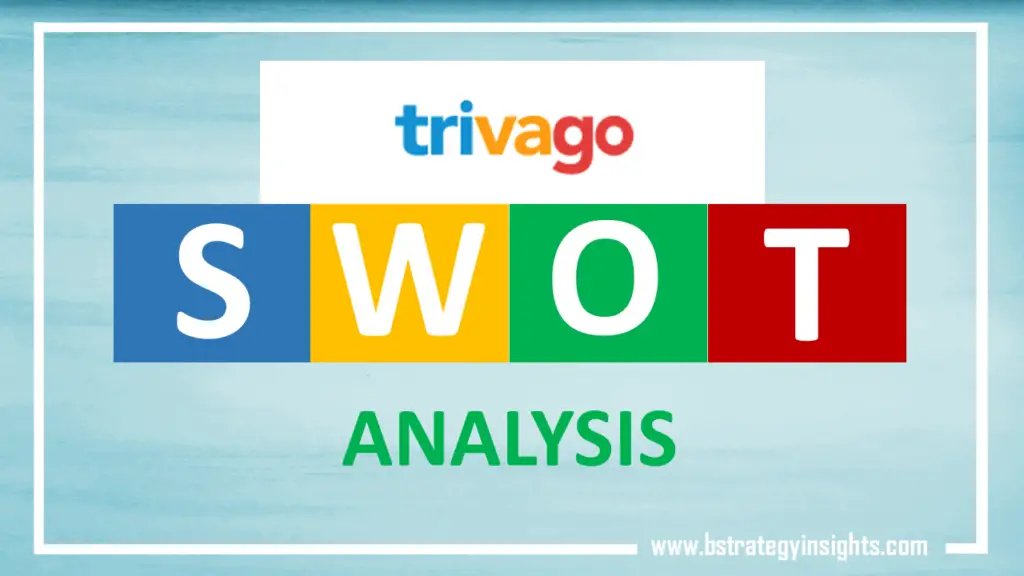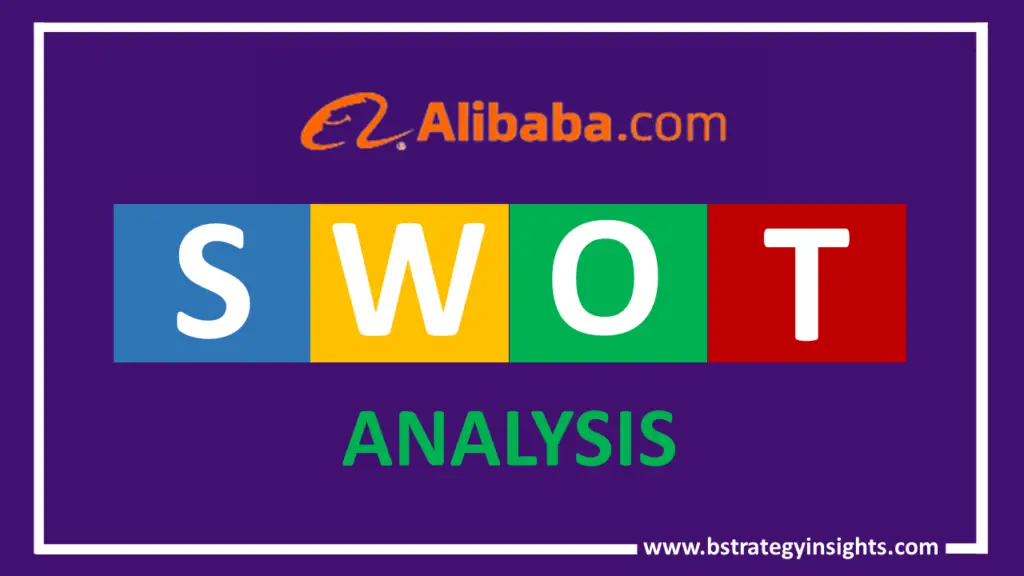
SWOT analysis is a simple yet essential helpful technique in assessing the soundness of a business. It gives unbiased insights into the strengths of a business, the weaknesses, the opportunities, and the threats that could face a business. Trivago is a leading company in the hotel booking industry and needs to continuously do the SWOT analysis to examine its critical internal and external factors. SWOT analysis will enable Trivago to make informed strategic decisions instead of reactively responding to the changes in the market. With SWOT analysis, Trivago can strategically compete in the market, making strategic moves instead of reacting to changes in the market.
Trivago is the largest metasearch hotel in the world. The aim of the company is to make it easier for individuals and business units to find their ideal hotel; its mission is to ‘be the traveler’s first and independent source of information when searching for a hotel at a low budget.’ The site compares hotel prices and reviews from thousands of online travel agencies from all over the world.
Trivago – At a Glance
| Name | Trivago N.V. |
| Website | https://www.trivago.com/ |
| Founders | Rolf Schrömgens, Stephan Stubner, Peter Vinnemeier, Malte Siewert |
| Chief Executive Officer (C.E.O.) | Axel Hefer |
| Tagline | Never great. Never wise. Never done |
| Headquarters | Düsseldorf, Germany |
| Type of Corporation | Public |
| Year Founded | 2005 |
| Revenues (2020) | €248.9 million |
| Key Products/Services | Metasearch for hotel prices trivago Hotel Manager |
| Key Competitors | Realtor.com · BoldLeads CRM · G2 Storefront · Zumper · LoopNet · CoreLogic Matrix · Redfin · Apartments.com. |
Trivago’s Strengths
Trivago as a leader in the hotel booking industry, has critical internal factors that have enabled the company to succeed in the market where others have failed. In addition, these factors have helped the company secure and protect its market share from external encroachment.
Strong brand product
Trivago seeks to earn the travelers’ trust as a company that provides independent information for finding ideal hotels at the lowest cost possible. Trivago sites use data from over 2.5 million hotels globally from hundreds of websites in comparing prices to achieve their mission. It additionally offers relevant reviews, photos, together with other related information pertinent to travel. Furthermore, the company uses the mystery guest test program to ensure honest and objective reviews about hotels.
Strong Parent Company
Trivago was acquired by Expedia Group, a major brand in the travel industry. As a result, the company can receive more financial, managerial, and strategic support from the company to better invest, expand, explore the market, and face competition.
Strategic acquisitions
In a bid to enhance the company’s competitive advantages, strengthen its product, grow its market reach and boost its customer experience, the company has made strategic acquisitions. In 2014, the company acquired Rheinfabrik, a mobile app development company. Additionally, in 2016 it acquired Cloud-PMS company Base7booking. Recently, the company has acquired two other companies, namely weekengo GmbH and weekend.com. With this acquisition, the company intends to stay engaged with travelers well after they have booked their trips through Trivago. This differentiates the company from the traditional norm of only being with travelers when looking for accommodation and no more after that. It will differentiate the company and ensure long-term relationships and increased loyalty for the brand. The newly acquired company focuses on helping travelers find inspiration weekend getaway packages.
An international presence
Trivago has over 50 local websites all over the world to ensure personalized customer services. In addition, Trivago services stretch over 190 countries globally.
Trivago’s Weaknesses
Gaps in consumer satisfaction
The low reviews on review sites are indicative of gaps in Trivago’s customer experience. Trivago is rated at 2.37 stars on sitejabber.com, 3.0 on consumeraffairs.com, 1.8 on trustpilot.com, 2.95 on mouthshut.com, and 4.5 on consumeradvocate.org. Most customers complained about Trivago’s customer service, credit card problems, and next-day problems. Trivago can use its strengths to enable the company to close up these gaps.
Limited brand offerings
Trivago is limited to hotels only and not any other facets of travel. Having a single product as opposed to a product portfolio increases the risks of failure and weaknesses. In case of any unfavorable conditions targeting the single product, the brand is likely to suffer adversely. Take, for instance, the time of COVID when hotels and travel were closed down; Trivago as a brand was adversely affected.
High staff turnover rates
Trivago recorded higher attrition rates among its employees compared to the industry average. This attracts more costs in recruiting, training, and retention of top talent critical for innovation, efficiency, and effectiveness in operations.
Trivago’s Opportunities
Global expansion
With globalization, Trivago can expand its reach to the entire globe. As it is, the company has operations in 190 countries.
Changing consumer behaviors
The changing trends in consumer behaviors present hidden opportunities for the brand to discover and act on them. A continuous focus on consumer data and analytics and the use of emerging technologies like big data will inform Trivago’s innovation to keep in tandem with the customers’ changing needs for greater profitability and longevity in the market.
New technologies
Technologies are evolving every day. Trivago could leverage emerging technologies to boost their efficiencies and effectiveness, which will help drive down costs, improve customer experience, and build up revenues.
Expansion of their product portfolio
Trivago’s expansion of its product portfolio to include flight, car, bus, and hotel bookings could help diversify risks of failure and increase revenues for the brand.
COVID Vaccination
The advent of COVID had a massive blow on Trivago, but with the introduction of vaccination, the travel and hotel industry is bound to see increased travel and bookings. Trivago should prepare adequately to reap the most from this growth.
Trivango’s Threats
Huge competition
The company faces tremendous competition from other companies in the market. Being facing with existing competitors and new entrants into the market, the competitors threaten to infringe on the market share of Trivago if Trivago does not put in measures to differentiate itself. Its competitors include Trip Advisor, Hotelscompare, and Hotelscombined.
The limited supply of innovative products
While the brand has tried to be innovative, limited innovations mean a shorter brand life cycle. It is crucial that Trivago strategically keeps on innovating to ensure longer product life cycles.
Unforeseen circumstances like COVID
Just like COVID was unforeseen, Trivago faces a high risk of closure in case of such occurrence that threatens the brand’s operations.
Conclusions
Trivago is a huge brand and has invested a lot to see it reach its present status in the market. It has all the strengths and opportunities needed to see it reach higher heights of growth. By working on its weaknesses and taking strategic advent of its opportunities, the brand will sure see more growth in the coming years.


